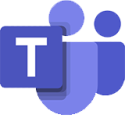In fond memory of our founder Harold "Harry" J. Swart, Jr. January 18, 1946 - March 9, 2025
Remembering Harry SwartDiversity resources for small business owners

Read time: 6 minutes (759 words)
Diversity—of customers, employees and vendors—isn’t just a consideration for large corporations. It’s an essential part of the future of small businesses, too.
By 2050, it's projected that the Black population of the United States will grow by approximately 30%, the Hispanic population by 60% and the Asian American population by more than 50%, while the aged population will grow by another 6%. That’s a lot of change on the horizon, which is why the number of resources available for helping small business owners embrace diversity, equity and inclusion (known as DEI) initiatives in their businesses is growing.
The makeup—and advantages—of a diverse workplace
Are there advantages for businesses that embrace diversity? First, let’s consider what makes for a diverse workplace: a range of races, ages, sexual orientations, gender identities, backgrounds, physical and mental skills and abilities (including disabilities), personality types, spoken languages, nationalities, education, and income.
And when you consider that diversity applies to not only the business’s employees or vendors, but your customer base, too, the benefits become clear:
You’ll gain more thorough knowledge and insight into the cultures of your local market.
You can better target your marketing and incorporate cultural sensitivity.
A more diverse set of perspectives and a wider range of knowledge can lead to more out-of-the-box thinking and innovation.
A culturally diverse workforce can give you an edge in a competitive job market—especially with Gen Y and Gen Z workers, who highly regard employers committed to DEI.
You’ll earn a reputation as a socially responsible and inclusive business.
Resources to help you build a diverse workplace
All right, so you’re ready to improve your hiring process to be more inclusive. But you’re not a large enough business to have a human resources team…yet, anyway. But how do you begin? Where do you find the information you need to be sure you’re doing it right? A good place to start is with this list of resources for an employer who would like to make their business more inclusive.
General
Diversity and Inclusion resources (U.S. Department of Labor)
Diversity, Equity and Inclusion – Glossary of Equity-Related Terms (Washington State Department of Enterprise Services)
The Dos and Don’ts of Attracting Diverse Talent (Diversity & Ability)
10 Tips for Inclusive Talent Management (Diversity & Ability)
DEI (Diversity, Equity & Inclusion) Checklist (University of California Berkeley Haas School of Business)
Race
DEI resources (Office of Equity, Washington State)
Library of racial equity resources (Racial Equity Tools)
How to Begin Talking About Race in the Workplace (Knowledge at Wharton Journal)
Getting Over Your Fear of Talking About Diversity (Harvard Business Review)
Can we talk about it? Addressing sensitive topics in the workplace (The Virginian-Pilot)
LGBTQIA+
Inclusion Hub for Small Businesses (The U.S. Chamber of Commerce Foundation)
Beyond Diversity: An LGBT Best Practice Guide for Employers (Great Place to Work® and Pride at Work Canada)
A New LGBTQ Workforce Has Arrived – Inclusive Cultures Must Follow (Boston Consulting Group)
Toolkit for Change: Assessing LGBTIQ+ Inclusion in Your Workplace (Out & Equal Workplace Advocates)
Programs & Initiatives (National LGBT Chamber of Commerce)
Women in the workplace
Why DEI Work is Critical to Advancing Women in the Workplace (California Public Employees’ Retirement System)
Women in the Workplace 2022 Report (McKinsey & Company and LeanIn.org)
Women in the Workplace: Creating a Culture of Equity & Inclusion (Herrmann)
Reinventing Gender Diversity Programs for a Post-Pandemic World (Boston Consulting Group)
Abilities and accessibility (physical and mental)
Mental Health Toolkit (EARN – Employer Assistance and Resource Network on Disability Inclusion)
Creating Inclusive Workplaces (Diversity & Ability)
WorkWithoutLimits Resources (WorkWithoutLimits)
Disability Inclusion Employment Best Practices (Disability:IN)
Communications
Inclusive Marketing Toolkit (Google)
The Accessible Social [Media] Checklist (Accessible Social)
When DEI is a top priority in the workplace, it not only gives all employees the same fair chance at success, but it elevates the business as an employer of choice. According to ZipRecruiter, 48% of job seekers are more likely to apply for jobs when employers state their commitment to DEI, which mirrors the growth in trends showing that consumers prefer brands that closely align with their values.
That’s almost half of the respondents...and it’s a mighty testament to the power of diversity, equity and inclusion. And when you take that first step toward becoming an inclusive workplace, you’ll not only change your business—you’ll change your horizons and your outlook…and you might even help change the world.


